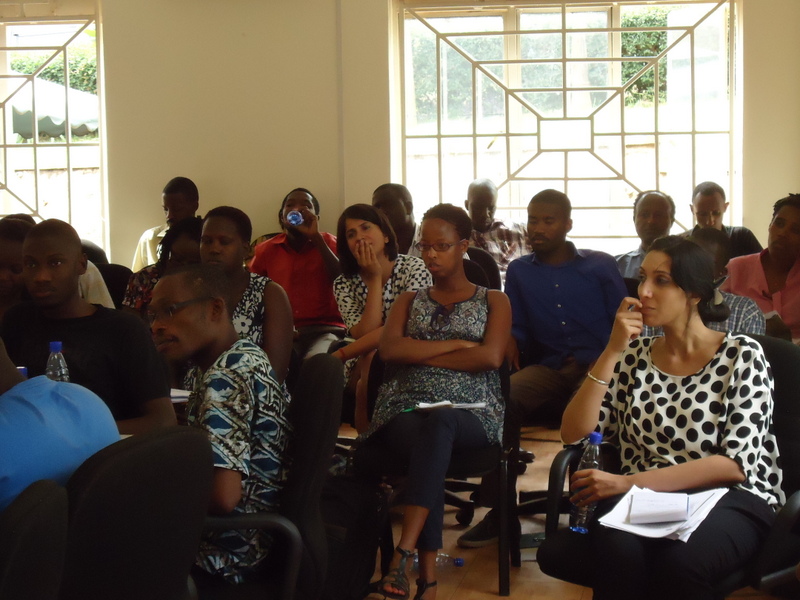
Lately, there is a lot of good scholarship in form of action research and public engagement going on at MISR. Today's Public Policy Forum on Higher Education attracted participants from research institutions, Development agencies and Embassies in Kampala. We had representatives from the National Planning Authority, Civil Society, Swedish Embassy staff, the National Council of Higher Education, Vice Chancellors and Deputy Vice Chancellors from fellow universities like Uganda Christian University, Ndejje University and Busitema University, Academics from Makerere University and the general wider public.
MISR is a living example of an active action-oriented research institute of Makerere. At this MISR Policy Forum on Higher Education, I presented a paper on "Obstacles and Opportunities of Research in Ugandan Universities" and Dr. Ronald Bisaso, was the discussant of this paper.
The basis of my argument is that in the past, Ugandan Universities had to contend with their traditional mandate as being institutions for the generation of knowledge, teaching and occasional service to community. The production of knowledge through research and peer communication has now given way to a widened mandate. This requires that knowledge itself is not enough until it is translated into a form of benefit or reward for society. Generally, such a transformation occurs through the medium of innovation production and diffusion. That transformation of knowledge into diffusible innovation is central to attempts by universities to be relevant and justify the massive public investment.
The current situation of poor research output means that Uganda universities have become, what I want to describe as, centers of knowledge consumption and not centers of knowledge production. By this I mean that with virtually no research budgets, no national granting councils to apply to, and low level of support from the private sector, Ugandan universities are restricted to their teaching mandate. Inevitably, it is the knowledge produced from non-research (Rd: NGOs) institutions that is being used in our university classrooms and libraries. We hardly contribute to the knowledge we consume. That makes us net consumers. This is so because, as mentioned earlier, the continent contributes to 0.7% of global scientific
output.
It was a wonderful audience, all Colleges are encouraged to organize such multi-stakeholder engagement events to brainstorm on a number of research topics.
Congratulations to MISR leadership.
Prof. Buyinza Mukadasi
Director, Research and Graduate Training
Makerere University

